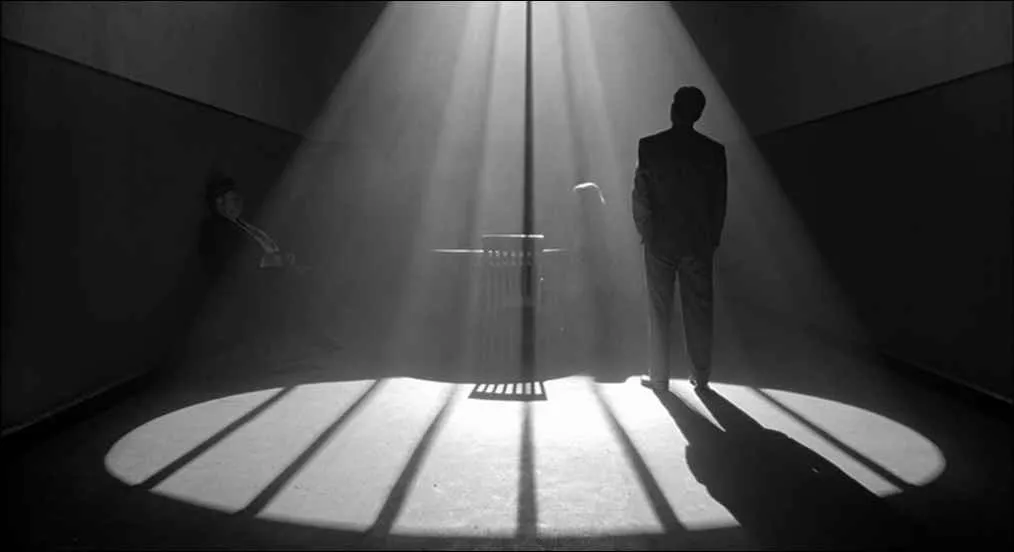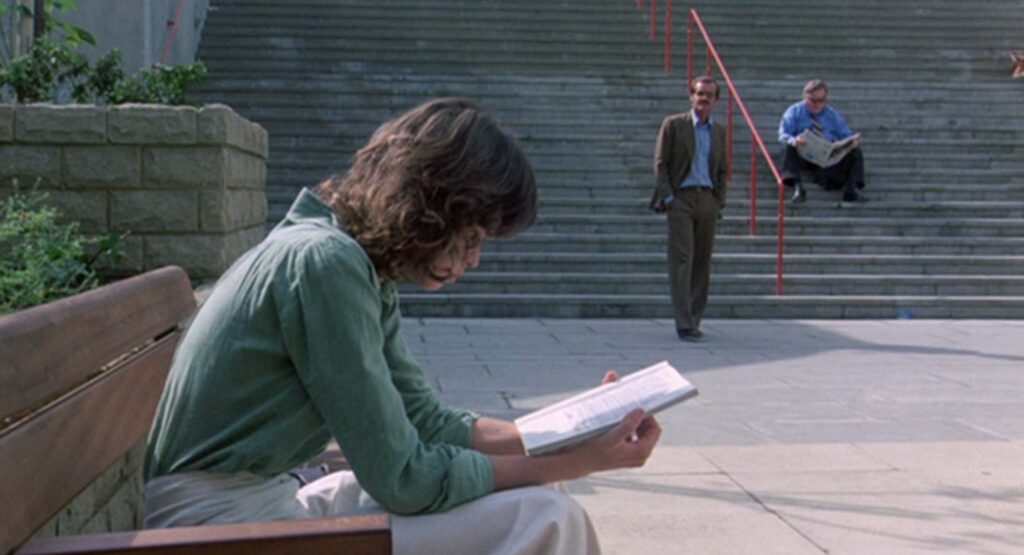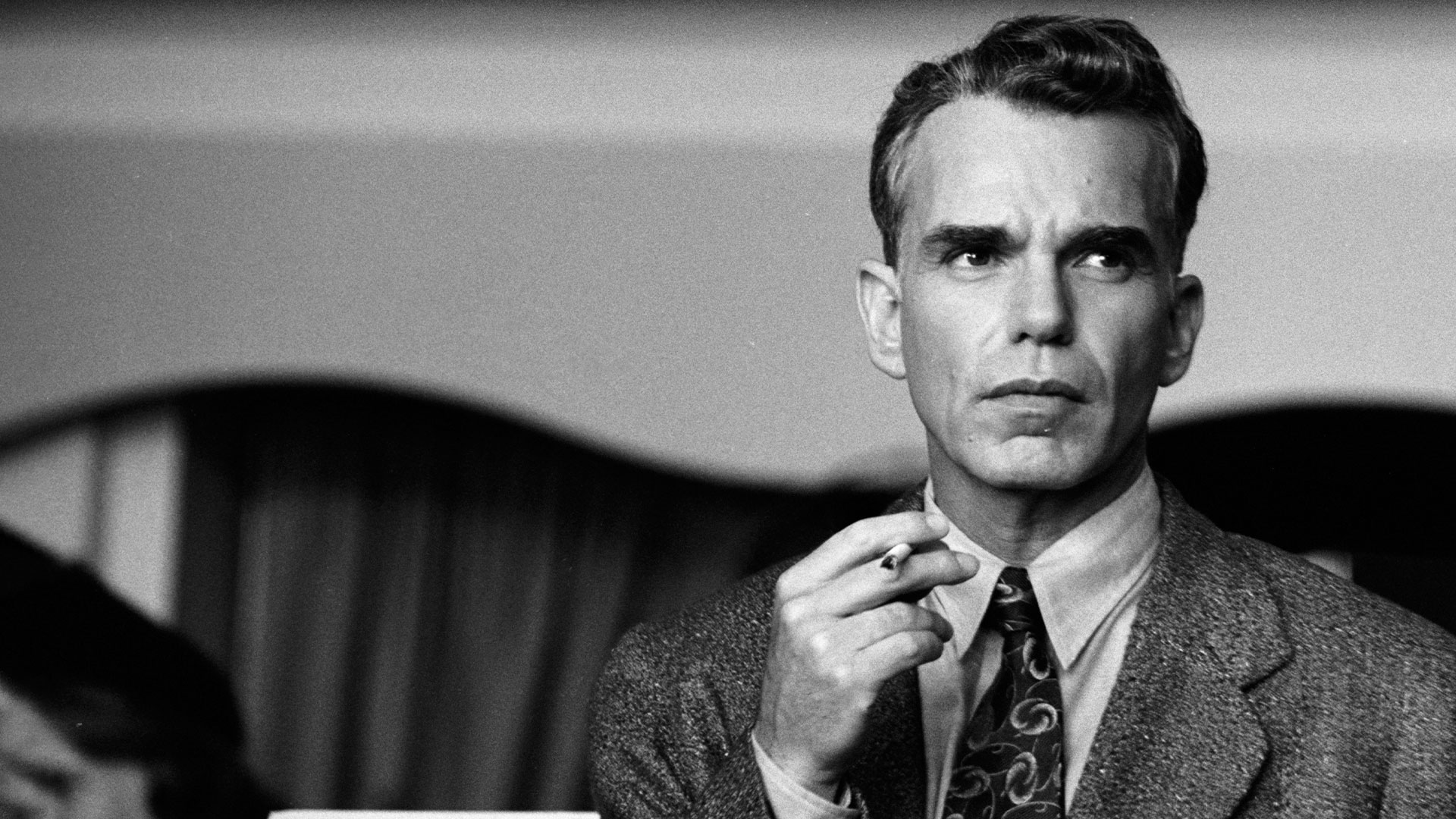‘Underrated’ is a word that’s been used a lot in cinema discussions. However, the films that are being used for such discussions don’t always fall under the same criteria. The prime motive of somebody using that is to say the film deserves more love. As simple as that. I am going to look at two underrated films that deal with protagonists who are lost and evoke a lot of existential musings through their respective characters and narratives.
The Man Who Wasn’t There (2001)

With a shared love for James M Cain and Raymond Chandler, the Coen brothers’ character study of Ed Crane felt like a film they always wanted to make. Roger Deakins calls it one of his favorite films that he’s worked on. The film’s images are filled with cigarette smoke and evocative silhouettes that hark back to classic noirs like The Touch of Evil. While it has its typical noir tropes in its narrative, the film is more of a character study of Ed Crane (Billy Bob Thornton). The side characters have great detailed personalities and I personally have seen myself in every one of them. Coen brothers have a great talent for making their characters even more interesting by putting them in absurd circumstances.
There’s a scene where Ed Crane, a barber who’s silent and keeps his thoughts to himself conducts an interview to hire another barber for his shop. The previous barber was a loudmouth, so this time he chose the person who didn’t say anything during the interview. But it turns out he was quite a big talker and was only silent in the interview because he was nervous.
Ed Crane plans a lot and tries to do something to improve his lifestyle but just like this one incident, life introduces a lot of absurdities and laughs at the face of his plans. It is a trademark of the Coen brothers’ very own dark humor. But Ed Crane is not a person who gives up though he yearns to. Ed thinks a lot and hopes for a good thing to happen. Whatever tragedy strikes, however big that is, he moves on. He finds other things to focus on while his life crumbles before him.
Even when he’s in the near hands of death, he hopes that he’ll go to another world that might be better than the place he’s already at. He’s the perfect representative of a modern man and The Man Who Wasn’t There is a farcical tragedy about such characters. It’s one of the very few films that I have seen that is close to literary classics like Dostoevsky’s Crime and Punishment.
Billy Bob Thornton’s excellent voiceover for Ed Crane is omnipresent throughout the film. You can see him play a different variation of this character in the TV Series Fargo. He’s not only greatly supported but also upstaged by the film’s cast which consists of greats such as Frances McDormand, Micheal Badalucco, Tony Shalhoub, Scarlett Johansson, James Gandolfini, Richard Jenkins and Jon Polito (a Coens regular).
When the film was released, it gained a few accolades and one significant trivia is that the Coen Brothers won the Best Director award for The Man Who Wasn’t There in Cannes along with David Lynch (Mulholland Drive). But after its film festival run, it lost its popularity both in terms of box office and its relevance after many years. For a film that is so thematically rich and has everyone bringing their A-game, it deserves more appreciation and audience. Like Ed, I hope that happens.
The Passenger (1975)

Antonioni’s The Passenger is a meditative thriller and a character study about its protagonist Locke. When a chance occurs, Locke changes his identity and becomes a wanderer in a whole new world different from his. I have come across many individuals who contemplated that idea at some point in their lives. In Locke’s case, he becomes free of his responsibilities and familiar faces but it comes with many risks.
Jack Nicholson stars as Locke who has an adorable charisma. He has been the face of the counter-cultural American cinema that was prevalent in the late ’60s to the ’70s’ like Easy Rider. By having him as the lead, The Passenger is at a great advantage. It eluded some people at the time like Roger Ebert but when he revisited it in 2005, he loved it as a film that reflects on identity, alienation, and the desire to escape oneself.
Technically it’s very strong. The camera movement is quite smooth and it plays an important role in this film’s great ending. One of the major reasons for its technical brilliance is its director Michelangelo Antonioni’s perfectionism. Sometimes, Antonioni re-paints and builds an entire house just to get the shot right. Antonioni’s films reflected on ennui. Through The Passenger, Antonioni shows the traces of feeling left in a person like Locke.
It’s a powerful 70’s American cinema that reflects what people went through in that era. Those feelings are still apparent to the people who live now but it’s just not as mainstream in films as in the 70’s. You can see such thinking in social media posts, in your friend, a random stranger who sits nearby, or in a Murakami novel. Throughout our lives, we battle with our own existential ramblings. Antonioni’s The Passenger is an exploration of characters who reflect that and that’s why I think more people need to see it.

Chaitanya Tuteja is someone who enjoys sharing his thoughts on books, movies, and shows. Based in India, he appreciates exploring different stories and offering honest reflections. When not reflecting on his favorite media, Chaitanya enjoys discovering new ideas and embracing life’s simple moments.


Here, you can find a wide selection of online slots from famous studios.
Players can enjoy retro-style games as well as new-generation slots with high-quality visuals and exciting features.
If you’re just starting out or an experienced player, there’s a game that fits your style.
play casino
Each title are instantly accessible round the clock and compatible with PCs and tablets alike.
All games run in your browser, so you can jump into the action right away.
Site navigation is user-friendly, making it quick to find your favorite slot.
Register now, and enjoy the thrill of casino games!
Here, you can discover a wide selection of online slots from leading developers.
Users can enjoy retro-style games as well as new-generation slots with vivid animation and interactive gameplay.
Whether you’re a beginner or a seasoned gamer, there’s a game that fits your style.
slot casino
The games are ready to play anytime and compatible with laptops and mobile devices alike.
All games run in your browser, so you can get started without hassle.
The interface is user-friendly, making it quick to browse the collection.
Sign up today, and enjoy the thrill of casino games!